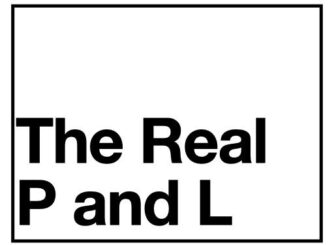When was the last time you searched online for something and you didn’t get an answer? Whether it’s an instructional video down to the make and model of a piece of furniture you are trying to assemble or scholarly research on a niche subject, there is usually a result that provides you an answer.
What does that mean for society?
· Time is saved by getting our answer quicker
· Our knowledge base grows more rapidly
In the case of building a piece of furniture, the instructional video could take the assembly time down from 2 hours to 1. What do we get to do with this hour saved? It will differ from person to person. Maybe it’s an hour back to watch a tv show or time to make dinner rather than ordering something. For me, it’s an hour’s worth of frustration saved because assembling furniture isn’t my forte.
What about a software developer that runs into a bug? Hopefully, their answer is the first link on their Google search. They can get back to creating and expanding our knowledge base. They are no longer stuck at a roadblock.
Having information readily available decreases our time being stuck, meaning we can spend more time making progress. From our progress, we create more knowledge that will hopefully provide answers to others’ questions. Our expanding knowledge base should decrease the number of times we are stuck and reduce the time we spent stuck. From this, we should be able to progress at a quicker rate.
Advancements in technology have brought the ability to share information almost instantly. You can hear from a friend across the globe about their promotion seconds after they hang up with their boss. Let’s think about the Plague vs the Spanish Flu vs COVID.
What percent of the world’s population were aware of these diseases in their present times? Almost everyone on Earth has heard about COVID. What about the Spanish flu or the Plague? For the people that did learn about the Plague or Spanish flu, how long did it take for that information to spread? My assumption is that more people knew about the Spanish flu than the Plague and that people were made more aware of it at a quicker rate. As time has progressed more information has been able to travel at a quicker rate.
How much more instantaneously can information travel?
The speed and mass spread of information traveling have been the two main breakthroughs of technology over the past 50 years.
Speed: We used to have to write letters to contact someone. Depending on what time period you look at, it could take weeks for that information to travel. The time it takes for information to travel is very close to zero now. The only real delay in a message being spread is someone not checking their phone every second. The text message or email is sitting there waiting for their eyes.
Mass: Newspapers allow for one piece of information to be consumed by everyone every morning, but it can become stale if information changes after the paper is printed. This information is only distributed to a specific location. Cable news running 24/7 allows for people to know what is going on when they’re watching. Social media allows one tweet to spread like wildfire. The real gap in a person not knowing what is happening is whether they have their eyeballs on a screen.
Improvements: The only way I see for improvements on how information is spread quicker to a wider audience is having information beamed directly to someone’s head and they can’t turn off the feed. I joke, but this isn’t too far off from where we are today. I’m sure there will be technical improvements on being able to send large amounts of data at a quicker rate, but in terms of knowing what is happening on the other side of the world, I think we are reaching an asymptote.
If speed and mass aren’t where advancements will come, then where will they?
The next advancements shouldn’t be around how quickly the information travels, but it’s being able to learn more with less. This is where machine learning and artificial intelligence come into play. Computers can recognize patterns we aren’t able to at a quicker rate.
It will be a never-ending cycle of learning more with less. Being able to learn more with fewer means we can more easily create new knowledge which will then be used for more insights to be gained in the future.
If we learn more with less and we are inherently able to create more knowledge because it requires fewer inputs, will there ever be a limit to human advancement?
I’m an optimist, so I think humans 50 years in the future will have a better life than we do now. I think humans in 250 years will be even better. Quality of life has continued to improve across the globe, and I believe it’s in human nature to continue to strive for a higher standard of living. Being able to learn from the information available to us is critical for continued improvement.
Peace and Love.
